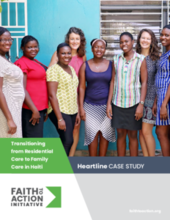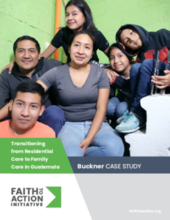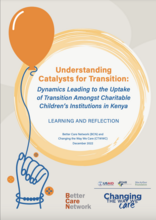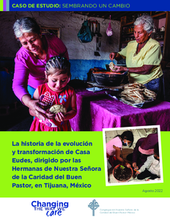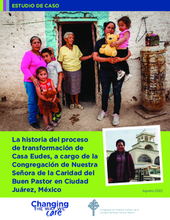Understanding the evidence and impetus for change and global care reforms
Before considering the nuances of transition from residential care to family-based care, it is important to first understand the reasons why there is a global shift away from the use of residential care for children and what is driving these changes.
The aim of this step is therefore to develop a high-level understanding of the reasons why care and child protection systems are being reformed across the world and why residential care for children is being scaled back and replaced with family-based care.
This step is focused on learning. Key actions may include facilitating or participating in learning through:
- Workshops
- Forums
- Webinars
- Advocacy events
- Conferences
- Trainings
- Online discussions
- Self-led learning
- Access to relevant learning resources
Learning topics that may be important to explore during this step include:
- The risks and impacts of institutionalisation on children’s development and wellbeing
- The importance of the family environment for children’s optimal development
- The reason for the prioritization of family-based care
- The international child rights framework: International norms and commitments underpinning global care reforms
- What are care reforms: Strengthening and transforming child protection and care reform systems to better protect the rights and best interests of children
- The continuum of care
- Decision making in the best interests of the child, including the necessity and suitability principles.
- Understanding how residential care service transitions fit into the continuum of care and broader child protection and care reform efforts
- Perspectives of care experienced young people and children
- The role of donors, partners and volunteers in supporting the rights and best interests of vulnerable children
- Faith Perspectives: Looking at children’s care and protection through a faith-based lens (for faith actors)
The key milestones associated with this step are, organizations key decision makers demonstrate:
- A level of understanding of what is driving the changes to children’s care and the shift away from residential care towards family-based care.
- An in-principal agreement with the prioritization of family-based care for children
- Readiness to explore the implications of transition to family-based care for the individual organisation in the specific local context
Resources
Displaying 1 - 10 of 31
Resistance from donors is a common barrier for organizations transitioning from residential care to family-based care. What works to sustain and even increase funding for organizations in transition?
The story of Heartline’s transition from residential care to family care is told in this recently released Faith to Action case study. The case study details their experience through three stages of transition—learning, preparation and planning, and full transition—with transparency. It addresses common challenges for transitioning organizations, as well as the strategies Heartline took to overcome them.
The story of Buckner Guatemala’s transition from residential care to family care is told in this recently released Faith to Action case study. The case study details their experience through three stages of transition—learning, preparation and planning, and full transition—with transparency. It addresses common challenges for transitioning organizations, as well as the strategies Buckner took to overcome them.
This learning brief was developed as part of the CTWWC 2022 annual report and shares learning from across different contexts. It is intended to showcase how the transition of care services is happening and how it can be supported.
This study was designed to be a small insights-based qualitative learning and reflection study to explore catalysts for transition. It was based on interviews conducted with Charitable Children’s Institutions’ (CCI) directors that sought to identify and explore the range of factors that influenced each director’s decision to transition their residential care services, and the interplay between those factors.
This was an interactive workshop organized and hosted by the Transitioning Residential Care Working Group as part of the Transforming Children’s Care Global Collaborative Platform.
Este estudio de caso destaca la transición de servicios de cuidado residencial a los basados en la familia y comunidad, realizado por las Hermanas de Nuestra Señora de la Caridad del Buen Pastor, en Tijuana B.C., México.
This case study highlights the transition of the Sisters of Our Lady of Charity of the Good Shepherd in Tijuana. It presents the highs and lows that come with a change process of moving from residential care to community-based services focused on family strengthening.
Este estudio de caso destaca la transición de servicios de cuidado residencial a los basados en la familia y comunidad las realizado por las Hermanas de Nuestra Señora de la Caridad del Buen Pastor, en Ciudad Juárez, México.

